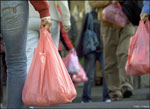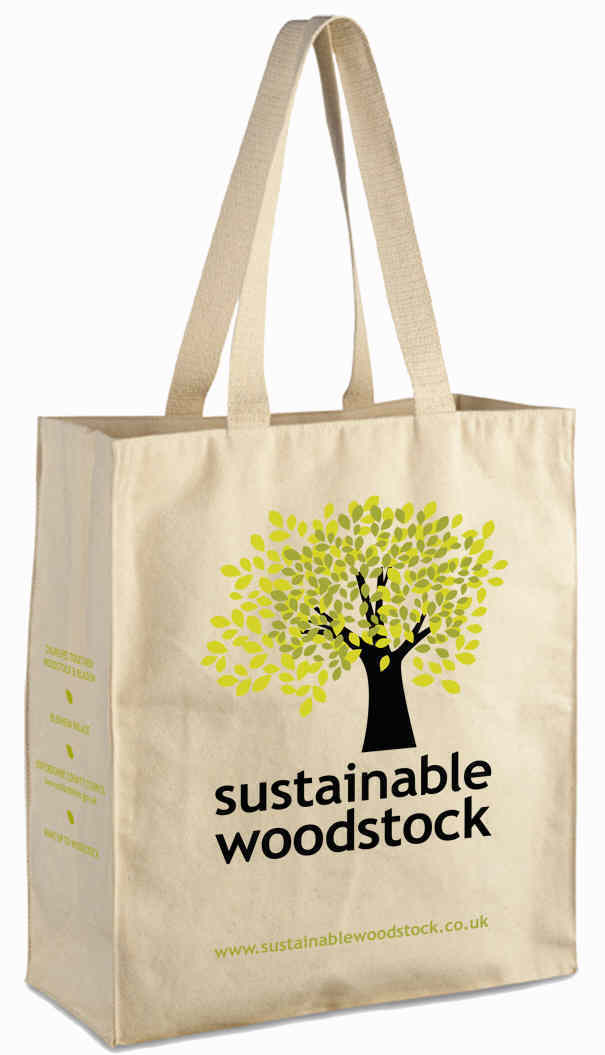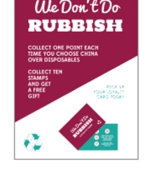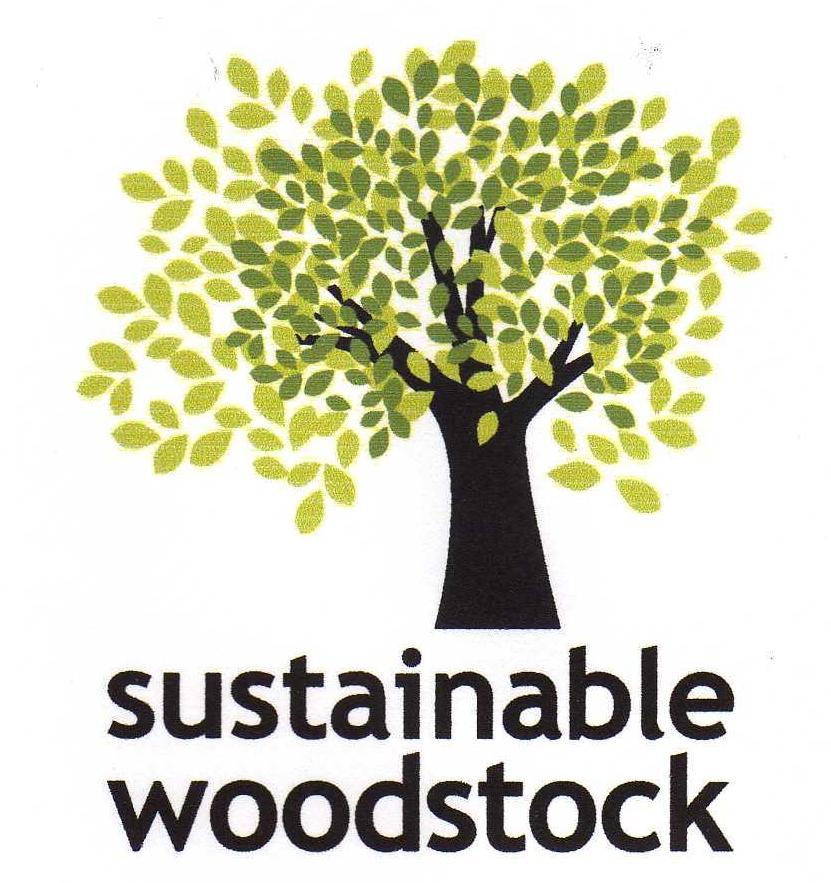.jpg) Make Woodstock a Plastic Bag Free Town
Make Woodstock a Plastic Bag Free Town
The Menace of Plastic Bags.
In 2018 we embarked on a town wide campaign to Make Woodstock a Single-Use Plastic-Bag-Free Town (SUPBFT). We are working with Surfers Against Sewage who coordinate the national campaign and have established guidelines and targets to achieve SUPBFT status as well as providing us with toolkits to help local businesses to reduce their dependence on plastics.
Sustainable
Woodstock is not against Plastic.
We are against
Single Use Plastic and
We are against non-recyclable plastic and
We are opposed to the indiscriminate disposal of waste plastic.
Our aims are:-
·
to encourage
residents to stop using single use plastics
·
to encourage
businesses/local institutions to stop marketing/using/making available
single use plastics to customers/clients/staff
·
to campaign for the
adoption of local/national/international standards for the recycling of
plastics that are easy for the public to understand
·
to campaign for the
plastics industry to stop using additives that render plastics
unsuitable for recycling
·
to campaign for
existing plastic waste on land and sea to be cleared
To facilitate our
aims we decided to try and become a Single Use Plastic Free Town.
To do this we began an accreditation process with leading West
Country campaigners “Surfers Against Sewage” (SAS)
The SAS
Plastic Free Business Toolkit
·
Plastic bottles
·
Single use
coffee cups and lids
·
Single use
plastic shopping bags
·
Plastic straws
and stirrers
·
Plastic cutlery
·
Balloons
Why not make a start now! Buy a Sustainable Woodstock bag by Canby today!
The Sustainable Woodstock Bag by Canby

 Sustainable
Woodstock wants to see all shoppers in the town carrying re-useable bags
like our very own SusWoo bags instead of the environmentally destructive
plastic bags that litter the countryside, require the use of significant
fossil fuel in their manufacture and take a thousand or more years to
degrade.
Sustainable
Woodstock wants to see all shoppers in the town carrying re-useable bags
like our very own SusWoo bags instead of the environmentally destructive
plastic bags that litter the countryside, require the use of significant
fossil fuel in their manufacture and take a thousand or more years to
degrade.
Sustainable Woodstock bags, of jute or cotton fabric, can be obtained
from the Town Hall, the Museum or from many of the town's retailers.
Pictured left:
Selling our bags at Woodstock's Saturday Farmers' Market on the town
square
The bags are made by "Canby Bags" of Oxford, who source all materials and labour ethically. So buy now while stocks last.
More reading on the plastic menace
1. Read the "Guardian Environmental Network's" guide, "How to turn your town plastic bag-free in nine steps" - click here
2. Click here to read Sustainable Woodstock's statement on the curse of Plastic Bags and our efforts to reduce their use in the town
3. Everyone complains about potholes. And
everyone complains about single-use plastic. Here is a win win
suggestion
Discarded industrial and household
plastic could be used in road surfacing if trials in Cumbria prove
successful. Read more ....
Tips, ideas and suggestions for reducing packaging waste, disposables
and plastics in your location
Too many items that we buy today are package and wrapped far more than is necessary. We need to remind shops, merchants, cafes, and restaurants that they should cut down on the millions of tons of waste and the pollution caused from it. We should encourage them, in turn, to raise the issues with wholesalers, distributors and manufacturers. What follows is a brief list of everyday items where we should raise our concerns with retailers. To read the full report click here.
1. Available
waste streams
2. Straws
3. Sachets
& portions of sauce, butter, jam etc.
4. Reusable
trays and delivery crates
5. Napkins
& serviettes
6. We
Don’t Do Rubbish!


7. Coffee
cups
8. Lids
9. Stirrers
10. Coffee
cup trays
11. Staff
drinks
12. Biodegradables
& compostables
13. Reusables
for drinking water & soft drinks
14. Free
drinking water top ups
15. Reusable
salad boxes
16. Charge
for disposables!
17. No
bags or charge for bags
18. Bulk
cereals
19. Milk
pergals
20. Hospitality
water
21. Wrap
22. Pots
23. Bottled
water, cans & cartons
Paper or Plastic - the Facts
It seems like it should be an easy choice, but from durability and re-usability to life cycle costs, there's a lot more to each bag than meets the eye.
Paper comes from trees -- lots and lots of trees. The trees are found, marked and felled in a process that all too often involves clear-cutting, resulting in massive habitat destruction and long-term ecological damage. It takes approximately three tons of wood chips to make one ton of pulp. The pulp is washed and bleached, and both stages require thousands of gallons of clean water.
If you throw them away, they'll eventually break down over many, many years. But if you choose to recycle the paper bags, then things get a little tricky. The paper must first be re-pulped, which usually requires a chemical process involving compounds like hydrogen peroxide, sodium silicate and sodium hydroxide, which bleach and separate the pulp fibers.
Unlike paper bags, plastic bags are typically made from oil, a non-renewable resource. Plastics are a by-product of the oil-refining process, accounting for about four percent of oil production around the globe. Like paper, plastic can be recycled, but it isn't simple or easy. Recycling involves essentially re-melting the bags and re-casting the plastic.
According to a life cycle analysis, plastic bags create fewer airborne emissions and require less energy per 10,000 equivalent uses. But paper bags can hold more stuff per bag -- anywhere from 50 percent to 400 percent more, depending on how they're packed, since they hold more volume and are sturdier.
Ultimately, neither paper nor plastic bags are the best choice; choosing reusable canvas bags instead is the way to go. From an energy standpoint, canvas bags are 14 times better than plastic bags and 39 times better than paper bags!
Did you know that, worldwide, we use an estimated one million plastic bags each minute? Somewhere between 500 billion to 1 trillion plastic bags are used and discarded EVERY year. Of those, only 1 percent or so are recycled – at a cost higher than what it would cost to produce a brand new one. The rest ends up in landfills, in our oceans, and as litter strewn across the globe. Plastic bag litter can now be found as far north as Spitsbergen (78° North latitude), and as far south as the Falklands (51° South latitude).
The first plastic "baggies" for bread, sandwiches, fruits, and vegetables were introduced in the United States in 1957. By the late 1960s plastic trash bags started appearing in homes and along curbsides around the world. It’s hard to believe that in just 50-some years our thoughtless consumption has managed to turn parts of our oceans into a plastic concoction that now contains six times more plastic by weight than plankton!
Plastic Bags are Forever
Many people don’t realize that plastic bags don’t biodegrade. They photodegrade, slowly breaking down into smaller and smaller toxic bits, which contaminate soil and waterways, where it enters the food chain - as animals mistake these tiny bits and pieces for food.
While plastic left in the sun on land can absorb infrared heat, which helps this process along, plastic in water takes far longer. Worse yet, even though the "ghostlike fishnet" made from photodegradable plastic might disintegrate before it drowns a dolphin, its chemical nature will not change for perhaps thousands of years. The filter feeders of the oceans will still ingest it.
Except for a small amount of plastic that has been incinerated, every single bit of plastic manufactured in the last 50+ years still remains somewhere in the environment. That half-century’s total production has already surpassed 1 billion tons.
Additionally, it takes 11 barrels of oil to produce one ton of plastic bags, which means we’ve used up some 11 billion barrels of a non-renewable resource to satisfy our want for convenience.
This plastic pollution causes more than 1 million seabirds, 100,000 marine mammals, and even more fish to die in the North Pacific alone, every year. And, let’s not forget, it’s not just marine animals that are poisoned by all this plastic.
You too are now ingesting plastics every day, and being exposed to a potentially deadly mix of plastic chemicals and additives, including:
Cancer-causing PFOAs, PBDEs, which cause reproductive problems, the reproductive toxins, phthalates BPA, which disrupts your endocrine system by mimicking the female hormone estrogen.
What happens to your body when you breathe, eat, drink, and absorb all of this plastic? Obesity, declining fertility rates and other reproductive problems, cancer, and more.
Why Switching to Paper is FAR From the Best Solution
While switching to paper might appear to be better than sticking with plastic, paper also, unfortunately, comes at a very high price to your environment, and your health. In fact, they’re roughly equal in their number of pros and cons. For example:
Producing a paper bag requires more than four times as much energy than it does to produce a plastic bag. A plastic bag uses 594 BTUs, compared to a paper bag, which uses 2511 BTUs during the manufacturing process. (Source: 1989 Plastic Recycling Directory, Society of Plastics Industry.)
The majority of paper comes from tree pulp, so naturally the impact in the form of deforestation is enormous. In 1999, 14 million trees were cut to produce the 10 billion paper grocery bags used by Americans that year alone.
In fact, paper bag production delivers a detrimental double-whammy as forests (major absorbers of greenhouse gases) are cut down, combined with the actual manufacturing process of the bags, which produces toxic greenhouse gases, acid rain, and water pollution.
Although paper bags have a higher recycling rate than plastic, only 10 to 15 percent of paper bags are recycled. And, making matters even less attractive, it takes 91 percent LESS energy to recycle a pound of plastic than it takes to recycle a pound of paper.
Last but not least, current research indicates that paper does not degrade at a substantially faster rate than plastic once it’s in a landfill. You can still find readable newspapers from the 1930s in landfills… This is because virtually nothing degrades completely in modern landfills due to lack of water, light, oxygen and other factors necessary for successful degradation.
Don’t Just Ask For Change -- Be It
Simple lifestyle changes can do wonders for your health and the environment, and using reusable bags instead of plastic or paper bags is among the absolute easiest. Remember, each reusable shopping bag you use has the potential to eliminate hundreds, if not thousands, of plastic bags over its lifetime. This is clearly one area where you can have a dramatic impact if you encourage your friends, family and neighbors to follow your lead.
 Sustainable Woodstock
Sustainable Woodstock